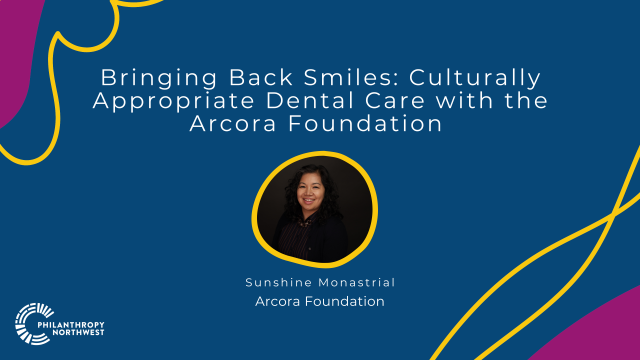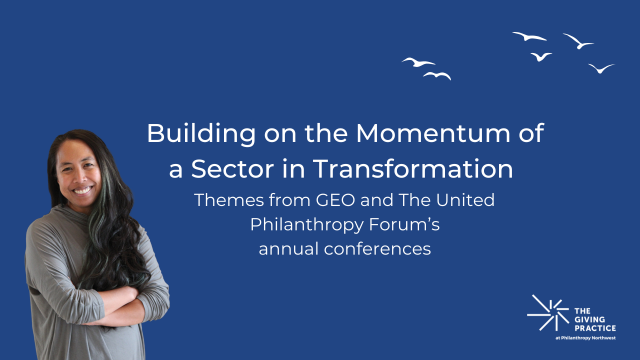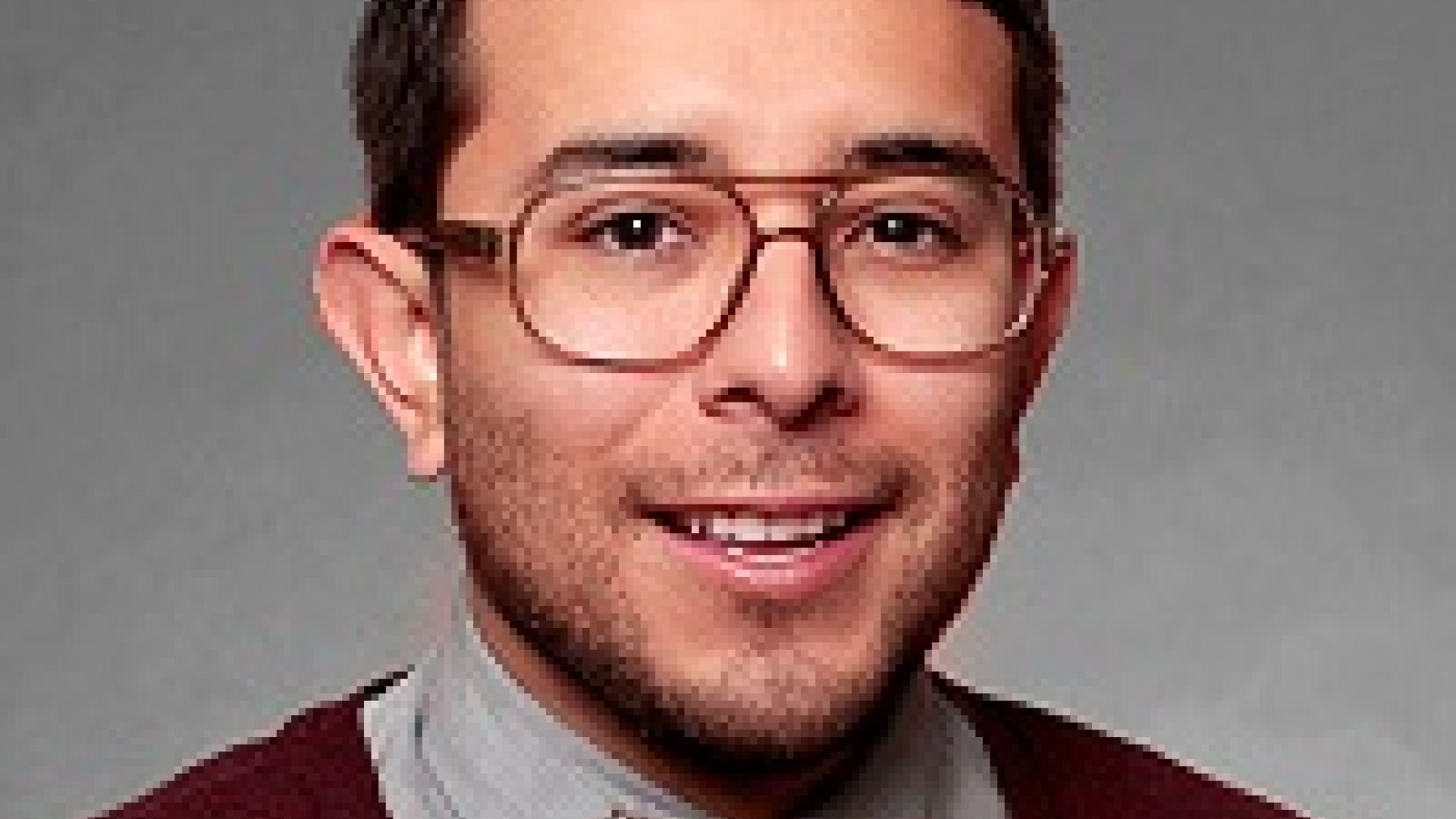
Eduardo Moreno, Momentum Fellow
Every time I was sick as a child, my mom would make her way over to the medicine cabinet and I knew it was going to be a couple of days in bed with the VapoRub and Broncolin treatment. This was a common home remedy among Mexican families, and one I sometimes catch myself using today. You see, I grew up in a small town in southern California in the 1980s. Everyone I knew was bilingual and loved to celebrate and appreciate all aspects of Mexican culture, like food, music, religion and, of course, la familia. There was no escaping la familia and the Latino community that helped shape all stages of my early education, spirituality, and even my health practices. It was this community that pushed me and kept me on track to become the first one in my family to attend a four-year university.
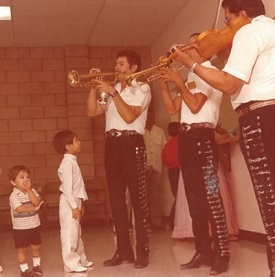
Imagine my surprise when I came to Portland, Oregon, in 2001, and discovered the extreme shortage of brown people in higher education! The closest I came to finding a family similar to mine was through my German classmate. It wasn’t until after college that I found a community like the one I grew up in. Working at a nonprofit housed at a middle school where the majority of the student body weren’t white, I finally felt at home and I thrived. Though I had many mentors and community cheerleaders, I believe that I was successful in my position due to my upbringing, which allowed me to understand the needs and experiences of immigrants and communities of color.
My experience as an extended day coordinator helped shape my belief that success in education must involve families and communities and equally important, it must be culturally relevant. Fast forward to 2015 to my role as a Momentum Fellow, as a health and education officer at Northwest Health Foundation. I’ve had the opportunity to work alongside many community-led organizations, school administrators and other funding partners in Oregon and southwest Washington.
Grantmaking With a Racial Equity Lens
In November, I joined the Momentum Fellows and staff from Seattle Foundation, Employees Community Fund of Boeing and other philanthropic organizations at Philanthropy Northwest's Best Practices: Essential Skills & Strategies for New Grantmakers workshop. I was excited about the focus on having and using a “racial equity lens” as a tool for grantmaking. At Northwest Health Foundation, we use our Guiding Principles and Commitment to Equity to make decisions in all areas of our work to better our understanding of the issues that impact the communities we serve. There is no issue that impacts our communities’ health more than education. Why? Educational attainment is the biggest indicator for lifelong health and prosperity.
But education disparities prevent communities of color from attaining the highest education. As outlined in The Oregon Education Investment Board: Third Grade Reading Equity Summit Report, “Students of color make up half of Oregon’s low-income students. Among third graders, students of color are much less likely to be able to read…with their progress deteriorating at levels significantly worse than whites, with racial disparities subsequently growing wider in the last three years.” Addressing these disparities in our school system requires multiple strategies including family engagement, partnerships with community-based organizations and other health and education stakeholders. As United States Secretary of Education Arne Duncan mentioned on our national call with education stakeholders shortly after the passage of Every Student Succeeds Act, we all collectively have a shared responsibility to support families for the educational success of our youth.
Locally, one way we have come together in Oregon to create funding opportunities for schools is the Oregon Active Schools Fund. This initiative brings together local and national funders, school systems, community-based organizations and tribes to support programs that inspire a lifelong love of physical activity and its many benefits for every child. Schools are given the opportunity to be innovative with spending their grants, and in some schools this has led to a greater appreciation of health through tradition and culture. For instance, one school used the money to re-introduce Native American language and traditional Latin American folkorico dancing through physical education.
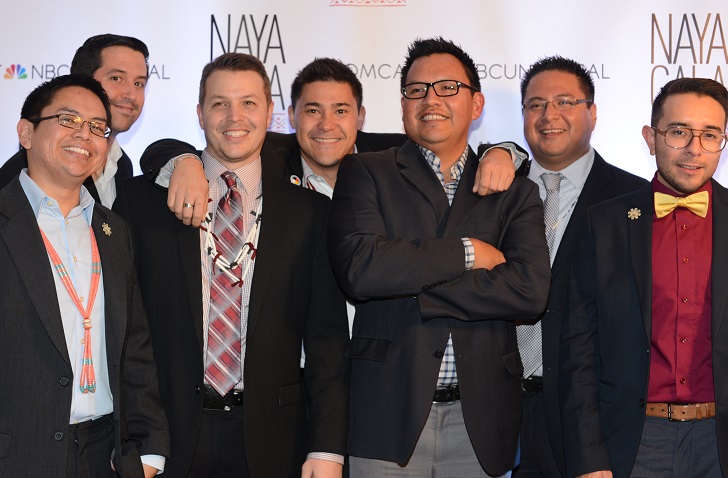
As my learning around philanthropy and funding at the intersections of health and education continues, I know that if we work collaboratively, and support families and communities to lead this work, they will in turn ensure that each student is emotionally and physically healthy, engaged, supported and challenged.
Eduardo Moreno is a Momentum Fellow hosted by Northwest Health Foundation. Read more about the Momentum Fellowship on our website, and stay tuned for more blog posts from our first cohort.

